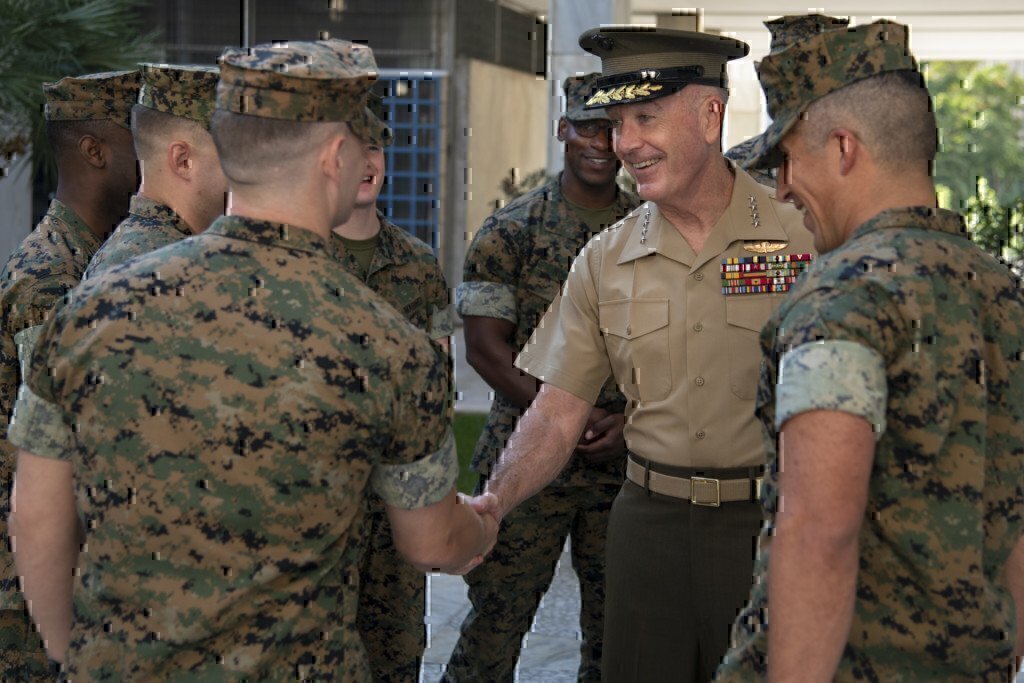Arguably one of the most valuable characteristics of military life is how quickly young troops are thrown into positions of responsibility. For enlisted members, this can begin as early as the first couple of weeks of basic training. For officer cadets, it may start within the first term of college. From there, opportunities to lead others to abound as servicemembers work their way up the ranks, supervising work centers, managing programs, providing OJT and mentorship to junior members…and along the way, setting the example for others to follow.
So how does any of that transition over into the “civilian world?”
Separating from service can be an uneasy transition for some, especially when you’ve been in for several years, or worked within a particularly gung-ho career field. Some find it hard to downshift into a more casual work setting. Others might miss the camaraderie forged from enduring hardships with one’s colleagues. But nobody says you can’t export some of your prior service skills into your civilian job.
In fact, many companies are counting on it! That’s why they are so veteran-friendly about their hiring processes! They want vets who can lead by example in a civilian job. So here are a few ways you can do just that and give ‘em what they’re after!

Stay Sharp, Stay Fit
After a few years of being told precisely how to look, many veterans go wild after separation. They may cut back (or give up entirely) on physical fitness, or start wearing nothing but sweat clothes and fuzzy slippers. They might even ease up considerably on their personal grooming and just sort of go on a vacation. It happens, and for some, the change is dramatic and fast.
But if you are planning to set an example in your civilian work center, it pays to remember those all those stuffy dress and appearance standards which were drilled into you! Don’t just pull your clothes out of the dryer and call it good. Iron them or take them to the dry cleaners. Men–don’t let that beard stubble get out of control. Keep facial hair well-trimmed and professional. Take pride in how you present yourself and others will respond. Up your game enough and you just might start a workplace competition.
And your civilian work schedule may not allow for gym time like your military job might have. But think about ways you can stay fit and healthy. If you work out at lunch, invite a co-worker…or to start an office running club! It is all too easy to become complacent but remembers, as a vet you are still a representative of your former branch of service. So represent!

Burn Faster
When a military member gets promoted ahead of the average time in rank, we label them a “fast burner.” Being a fast burner means that high speed individual isn’t shy about going out there and getting what’s theirs. They achieve success through careful planning, diligent study, and excellence in their duties. This success hould, in a perfect world, never be to the detriment of others, though. A fast burner should always be willing to help others and not simply be out for Number One.
This holds true in the private sector as well. If you want to be a fast burner, by all means be one. But don’t do it in a manner which leads to resentment. Do the opposite. Take time to show others your secrets to success. If you have found a way to perform a process better, offer to show your peers. If you’ve created a personal toolkit filled with tricks to help you get your work done faster, don’t be stingy. Share the wealth, and help your coworkers out. Raise the bar for your organization by leading them, blatantly or subtly, to the next plateau of operational effectiveness.
Together your team will burn even faster and brighter when you use your military training and leadership skills to ignite their performance.
Stay Focused on the Mission
Toiling long enough in the daily grind can suck anybody into a sense of lethargy. A pit within which we get so immersed in the minitia of work that we lose sight of the bigger picture. And as any vet can tell you, that big picture is also known as “the mission.” Every military unit has a mission, a reason for existence. But companies do, too. In fact, many publish their mission statements on their websites, and the employees never bother to read them.
Know your company’s mission, and help educate others about the big picture. You don’t have to come across like a living commercial, but instead of chattering over the small potatoes or complaining about some minor personnel dispute, keep your speech elevated and on point about the goals of the week or month or year. Don’t be afraid to inspire others with your commitment to contributing to the company’s broad scope interests.
A little bit of idealism goes a long way, and that’s a quality that can be far too lacking in the civilian sector.

Always Take the High Road
Nothing irks a veteran more than being stereotyped, and one of the worst stereotypes out there is that veterans are easy to anger because of their past experiences. The fact is that military personnel have a ton of training on how to maintain their composure in the heat of the moment, to stay calm and rational in tense situations. So when some workplace dispute comes up, never lose your cool or let it get to you.
People are watching. Give them a teachable moment to observe and show that a true professional takes the high road in an emotionally charged or tense situation. Vets don’t need to raise their voice or elevate their temper. Pride and self-control steer their actions and allow them to instead focus on clear, level-headed resolutions in which everybody can walk away with a sense of being heard and treated with respect and courtesy. And that is how you lead by example!
READ NEXT
7 Gym Essentials to Build an At-Home Gym
6 Veteran Influencers to Follow into 2019














